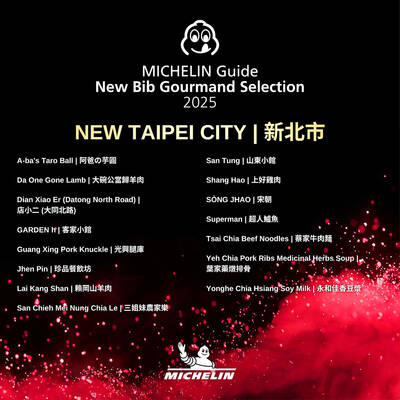1. 聽了這話,那人笑說:「你弄錯了。」
ˇ On hearing this, the man said, laughing, “You are mistaken.”
χ On hearing this, the man said, laughing, you are mistaken.

Photo: AdobeStock l 照片:AdobeStock
註:you are mistaken 是主詞 the man 說的話,並非別人複述或轉述 the man 的話,應作直接引語而加引號。
2. 她說她很高興認識我。
ˇ She said that she was glad to meet me.

Photo: AdobeStock l 照片:AdobeStock
ˇ She said, “I am glad to meet you.”
χ She said that “she was glad to meet me.”
註:間接引語不用引號,引號只用於直接引語。
3. 她問他,喜不喜歡跳舞。
ˇ She asked him if he liked to dance.
χ She asked him if he liked to dance?
註:一般疑問句變為間接引語時,用 if 或 whether 來引導。疑問句變為間接引語即間接問題時,句末不需用問號。
4. 他說我可以隔天再來。
ˇ He said that I could come the next day.
χ He said that I could come tomorrow.
註:在間接引語中,如敘述者的地點和時間,與說話者的地點和時間不同,則時間副詞、地點副詞和指示代名詞要作相應的變動。如 tomorrow 改為 the next day;yesterday 改為 the day before。同樣:today, tonight, last night, now, ago 應改為 the day, that night, the night before, then, before that time;here 改為 there;this, these 改為 that, those。反之,則不需變動。例如:
He said that he would come tomorrow.
(說話者與敘述者的時間相同。)
He said he would come here.
(說話者與敘述者的地點相同。)
5. 我問她,她的女兒怎麼了。
ˇ I asked her what was wrong with her daughter.
χ I asked her what’s wrong with her daughter.
註:間接引語中的動詞時態應與報告動詞(或稱先導動詞)一致。若報告動詞是過去式,則被引用句中的動詞現在式變成相應的過去式,過去式變成過去完成式,將來式變成過去將來式。
若報告動詞為現在式或將來式,則間接引語的動詞時態可以不受上述限制。例如:
He is telling me that he was born in 1940.
表示習慣、常例或普遍真理的時態也不受上述限制。例如:
He said that facts speak louder (than words).
Exercises:
A. 他說他前一天己經把那本書歸還圖書館了。
He said that he __________ the book to the library the day before.
1. had returned
2. has returned
3. have returned
4. was returned
B. 他說這個消息是假的。
He said, “The news __________ false.”
1. has
2. were
3. is
4. are
Answers: A. 1 B. 3
文章由書林出版公司提供:
www.bookman.com.tw
蘇正隆 — 台灣翻譯學學會前理事長、師大翻譯研究所兼任副教授; 編著《走讀自然.花言樹語》,《英語的對與錯》,《世紀病毒:必讀防疫英文知識與詞彙》...等。國家教育研究院中英雙語詞彙審議委員;研究領域為翻譯、術語及詞典編譯,從事植物與人文導覽數十年,亦曾應邀遠赴國外大學做植物人文導覽。

If you think you’re cool and know all the latest trends, then here’s a question for you: What does the word “brat” mean? If you said something like, “a child who behaves badly or is annoying or rude,” you might not be as hip as you think. This four-letter word now has a new definition that has become quite popular. Its popularity caught the eye of Collins Dictionary, which crowned it as “Word of the Year 2024.” According to this new meaning of brat, it is used as an adjective to describe someone who has a confident, independent, and hedonistic

A: Seeing as the 2025 Michelin Guide extended to New Taipei City and Hsinchu City and County, it’s hard to believe that none of the restaurants won a Michelin star. B: Some fine establishments — like Hsinchu’s A Cut steakhouse — surely deserve the honor. A: Michelin-starred restaurants have good quality food, but some of them are so pricey. B: I once had barbeque pork at a starred restaurant that set me back NT$4,800. That’s even higher than my weekly food budget. A: No wonder several of them have closed down recently, as high prices and the tariff war are scaring off

A: The Michelin Guide Taiwan announced the 2025 Bib Gourmand eateries and starred restaurants last week. B: What were the highlights this year? A: In addition to Taipei, Taichung, Tainan and Kaohsiung, New Taipei City and Hsinchu City and County were included for the first time. B: As a New Taipei resident, I can’t wait to try all the awarded local delicacies. Should we start from the more affordable Bib Gourmand selection? A: Sure, New Taipei and Hsinchu each boast 15 Bib Gourmand eateries now, including some famous establishments such as San Tung restaurant. A: 2025《米其林指南》近日公布「必比登推介」和星級餐廳。 B: 今年的名單有哪些亮點? A: 除了台北、台中、台南、高雄,今年加入新北、新竹縣市! B: 身為新北人,我真想吃遍當地的美食,我們要不要從平價的必比登先開始? A: 好啊新北、新竹各有15家入選必比登,像山東小館等知名餐廳都有上榜唷。 (By Eddy Chang, Taipei Times/台北時報張迪)

Continued from yesterday(延續自昨日) https://www.taipeitimes.com/News/lang Interestingly, one of the words Collins Dictionary discarded was selected by Oxford University Press (OUP) for its own Word of the Year. On its Web site, the publishing house of the University of Oxford stated it had conducted a public poll in which over 37,000 people participated. The voters, along with OUP’s language experts, settled on the term “brain rot.” One main reason for the decision was the vast amount of interest in the noun during 2023 and 2024, with its usage increasing by 230 percent. In fact, brain rot is not a new term by any